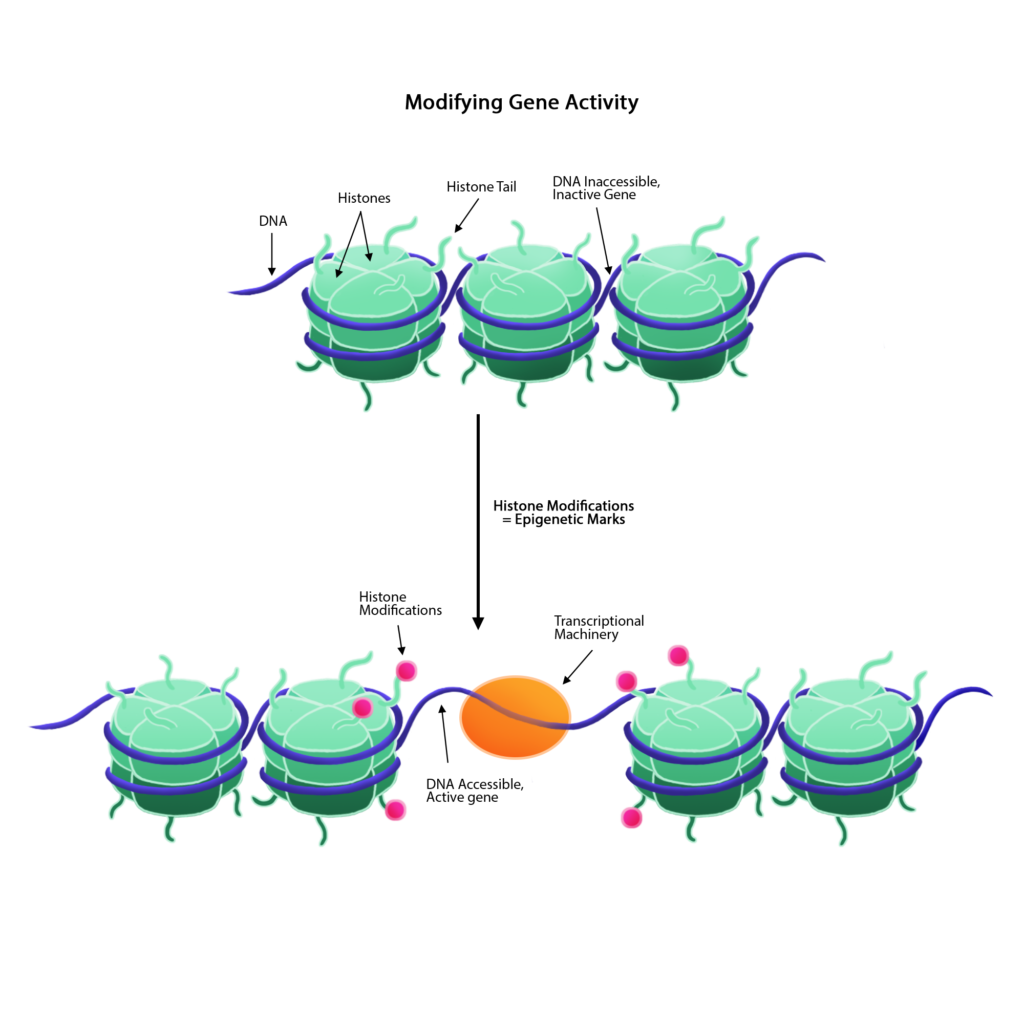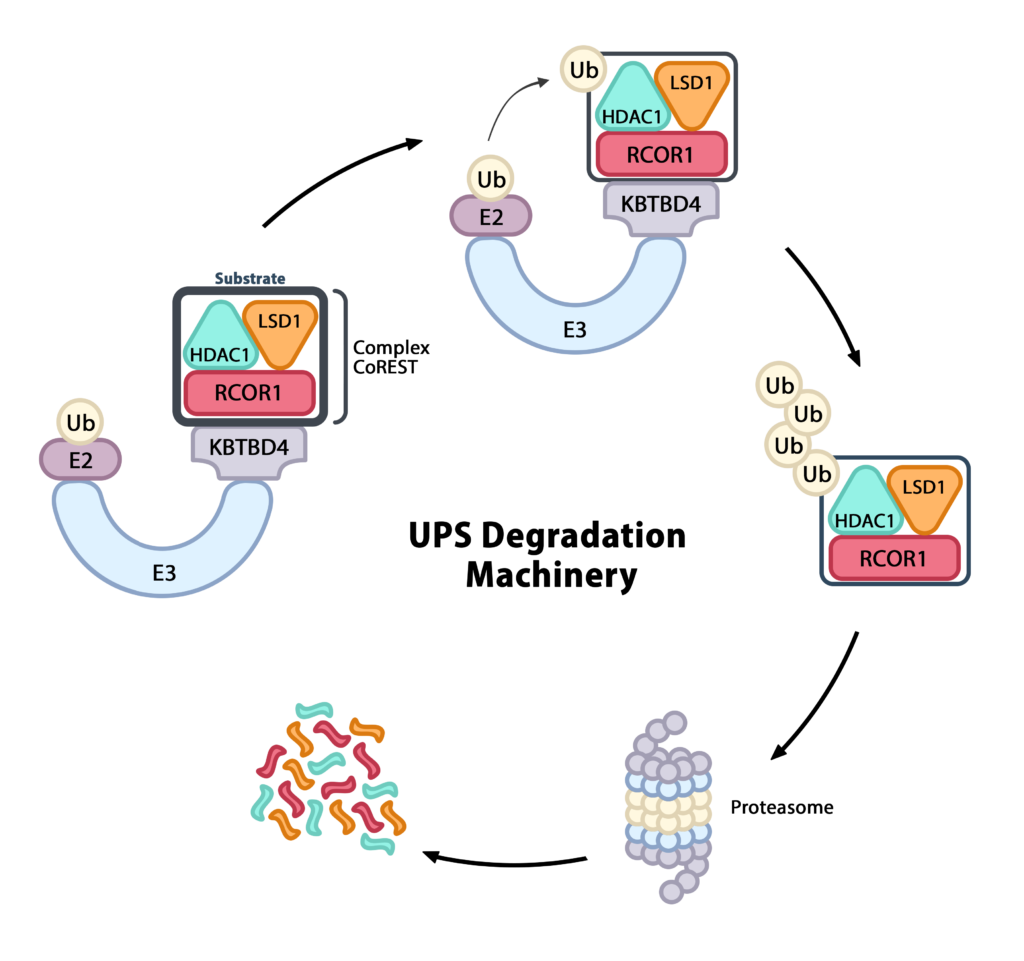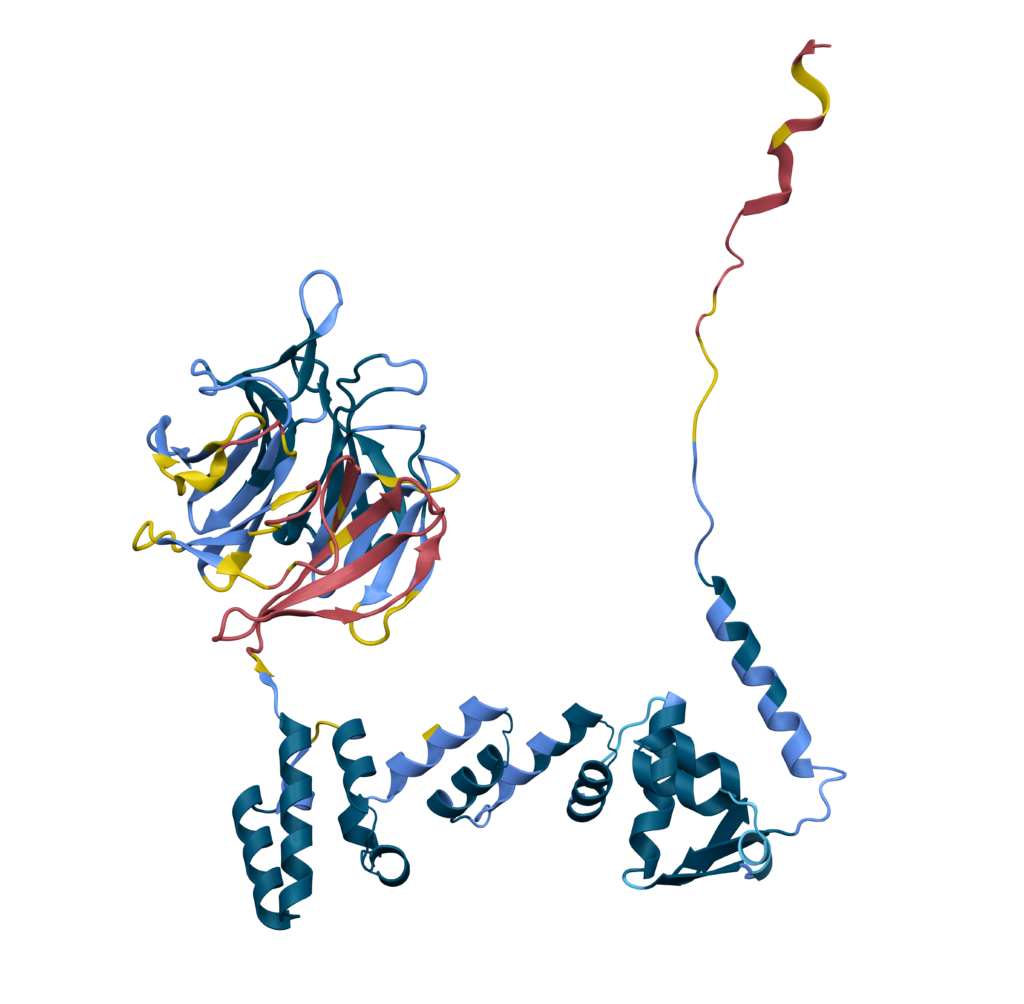OUR SCIENCE
Aging, Cancer and Stem Cells
Aging and Cancer, the Same Battle
Aging is the key risk factor for cancer development.
Although aged cells and cancer cells appear different, epigenome changes characterize both cells.
The Epigenome
The epigenome is the collection of chemical modifications of the DNA that affect gene activity and are independent of the DNA sequence.
These epigenome modifications serve as marks that tell the cell machinery which genes should be turned on or off.
These epigenetic marks also define cell specificity (muscle, brain, blood, etc.) in normal tissues.
These epigenetic marks are:
- induced by specific enzymes. In tumor cells the activity of these enzymes is frequently abnormal because of mutations.
- influenced by environmental factors such as diet and exposure to toxins
- strongly attenuated in aging (stem) cells

Normal Stem Cells and Cancer Stem Cells
Normal and cancer stem cells are a subpopulation of cells that have the ability to self-renew and differentiate into diverse cell types.
The behavior of normal and cancer stem cells is primarily determined by their reversible epigenetic modifications some of which controlling the regulation of genes that affect their proliferation and differentiation.
Cancer stem cells, unlike normal stem cells, differentiate in a poorly regulated and disorganized fashion and are believed to be:
- responsible for growth, progression and recurrence of cancer
- resistant to chemotherapy and radiation.
These epigenetic modifications, responsible of the dysregulated differentiation of cancer and aging stem cells are therefore now recognized as key therapeutic targets for treating cancer and aging.
Novel Key Epigenetic Modifiers
We have identified a new series of molecules that rejuvenates human blood stem cells by inducing the degradation of a complex of proteins called CoREST1.
CoREST1 is composed of 3 proteins, RCOR1, HDAC1/2 and LSD1. HDAC1/2 and LSD1 are important known epigenome regulators and RCOR1 is the scaffolding entity of the complex.
The degradation of the complex CoREST1 occurs through the Ubiquitin Proteasome System (UPS) and involves a new Cullin 3 complex called CUL3KBTBD4.
CUL3KBTBD4 recruits the complex CoREST1, which is then tagged with an ubiquitin chain by the E2 ligase present in the CUL3KBTBD4 complex.

Our series of molecules activates this new CUL3KBTBD4 degrading complex, which may be a major regulator of aging.

Novel Screening Conditions to Identify Stem Cells Bioactive Molecules
Primary cancer cells and cancer stem cells are difficult to grow in culture as they quickly differentiate. The activity of anti-cancer compounds is therefore difficult to measure, which compromises the design and development of anti-cancer drugs.
Starting with leukemia, we have developed our own culture conditions that preserves leukemia stem cell activities.
Using these new culture conditions and cancer patient cells, we screen libraries of small molecules and are able to identify compounds that really have an effect on cancer patient cells and affect cancer stem cells.
Pabst, Nature Methods 2014.